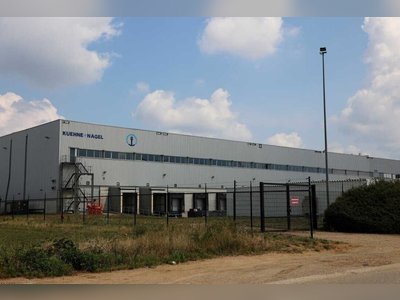
EIB Investment Report: Analysis Reveals Italian Firms' Resilience and Investment Trends
The latest EIB Group Investment Survey indicates a rise in corporate investment in Italy, highlighting strengths in digitalization and sustainability, though challenges remain.
Brussels – According to the latest European Investment Bank (EIB) Group Investment Survey (EIBIS), corporate investment in Italy has increased by 9.4 percent compared to pre-COVID levels, demonstrating significant resilience and confidence among companies to enhance their operations.
The survey analyzed the investment strategies of approximately 13,000 firms across the European Union and the United States.
Gelsomina Vigliotti, Vice President of the EIB, noted that Italian companies are increasing their investments in sustainability and innovation.
She emphasized that while there has been progress, further acceleration in these areas is essential for enhancing the country’s competitiveness and autonomy.
The survey reveals noteworthy insights regarding the investment landscape in Italy:
Innovation and Digitization: Approximately 71 percent of Italian firms are utilizing advanced digital technologies, including big data, drones, platforms, and artificial intelligence.
This figure is slightly below the European average of 74 percent.
The construction sector appears to lag behind in terms of digitization.
Sustainability: Although investments aimed at mitigating climate change have risen, they remain below the EU average, with 82 percent of Italian companies implementing measures to reduce emissions compared to 91 percent across Europe.
While the adoption of renewable energy is relatively strong, other environmental strategies are not as widely implemented.
Climate Resilience: More than half of the surveyed businesses (56 percent) have adopted measures to address extreme weather events, surpassing the EU average of 48 percent.
Additionally, 46 percent of Italian firms are insured against climate-related damages, significantly higher than the EU average of 21 percent.
Financing: Italian companies primarily finance their investments through internal resources.
The reliance on external funding remains stable, standing at 52 percent, which is higher than the EU average of 42 percent.
Debora Revoltella, Chief Economist at the EIB, stated that European companies are advancing in their efforts to tackle climate change and embrace digital transformation.
She highlighted the need for a more cohesive and integrated single market to bolster investment across the EU.
The findings from this survey contribute to the annual Investment Report, the flagship publication of the EIB Group’s Economics Department, which provides insights into the investment outlook for the European economy.
The next Investment Report is scheduled for release during the third edition of the EIB Group Forum in Luxembourg on March 5, 2025. This event will bring together governmental, business, and financial leaders to discuss investment priorities aligned with European policies, including industrial decarbonization, artificial intelligence, security, and EU enlargement.
The theme for this year’s forum is 'Investing in a More Sustainable and Secure Europe.'
The survey analyzed the investment strategies of approximately 13,000 firms across the European Union and the United States.
Gelsomina Vigliotti, Vice President of the EIB, noted that Italian companies are increasing their investments in sustainability and innovation.
She emphasized that while there has been progress, further acceleration in these areas is essential for enhancing the country’s competitiveness and autonomy.
The survey reveals noteworthy insights regarding the investment landscape in Italy:
Innovation and Digitization: Approximately 71 percent of Italian firms are utilizing advanced digital technologies, including big data, drones, platforms, and artificial intelligence.
This figure is slightly below the European average of 74 percent.
The construction sector appears to lag behind in terms of digitization.
Sustainability: Although investments aimed at mitigating climate change have risen, they remain below the EU average, with 82 percent of Italian companies implementing measures to reduce emissions compared to 91 percent across Europe.
While the adoption of renewable energy is relatively strong, other environmental strategies are not as widely implemented.
Climate Resilience: More than half of the surveyed businesses (56 percent) have adopted measures to address extreme weather events, surpassing the EU average of 48 percent.
Additionally, 46 percent of Italian firms are insured against climate-related damages, significantly higher than the EU average of 21 percent.
Financing: Italian companies primarily finance their investments through internal resources.
The reliance on external funding remains stable, standing at 52 percent, which is higher than the EU average of 42 percent.
Debora Revoltella, Chief Economist at the EIB, stated that European companies are advancing in their efforts to tackle climate change and embrace digital transformation.
She highlighted the need for a more cohesive and integrated single market to bolster investment across the EU.
The findings from this survey contribute to the annual Investment Report, the flagship publication of the EIB Group’s Economics Department, which provides insights into the investment outlook for the European economy.
The next Investment Report is scheduled for release during the third edition of the EIB Group Forum in Luxembourg on March 5, 2025. This event will bring together governmental, business, and financial leaders to discuss investment priorities aligned with European policies, including industrial decarbonization, artificial intelligence, security, and EU enlargement.
The theme for this year’s forum is 'Investing in a More Sustainable and Secure Europe.'
AI Disclaimer: An advanced artificial intelligence (AI) system generated the content of this page on its own. This innovative technology conducts extensive research from a variety of reliable sources, performs rigorous fact-checking and verification, cleans up and balances biased or manipulated content, and presents a minimal factual summary that is just enough yet essential for you to function as an informed and educated citizen. Please keep in mind, however, that this system is an evolving technology, and as a result, the article may contain accidental inaccuracies or errors. We urge you to help us improve our site by reporting any inaccuracies you find using the "Contact Us" link at the bottom of this page. Your helpful feedback helps us improve our system and deliver more precise content. When you find an article of interest here, please look for the full and extensive coverage of this topic in traditional news sources, as they are written by professional journalists that we try to support, not replace. We appreciate your understanding and assistance.











